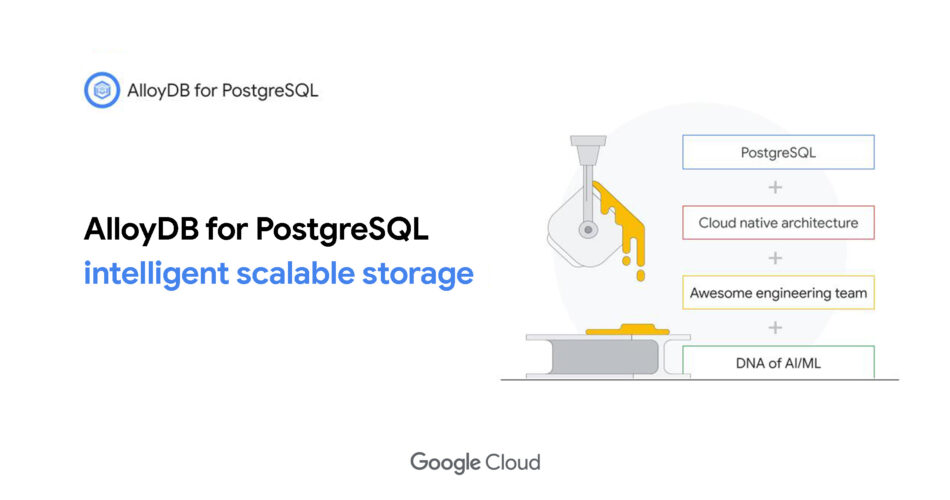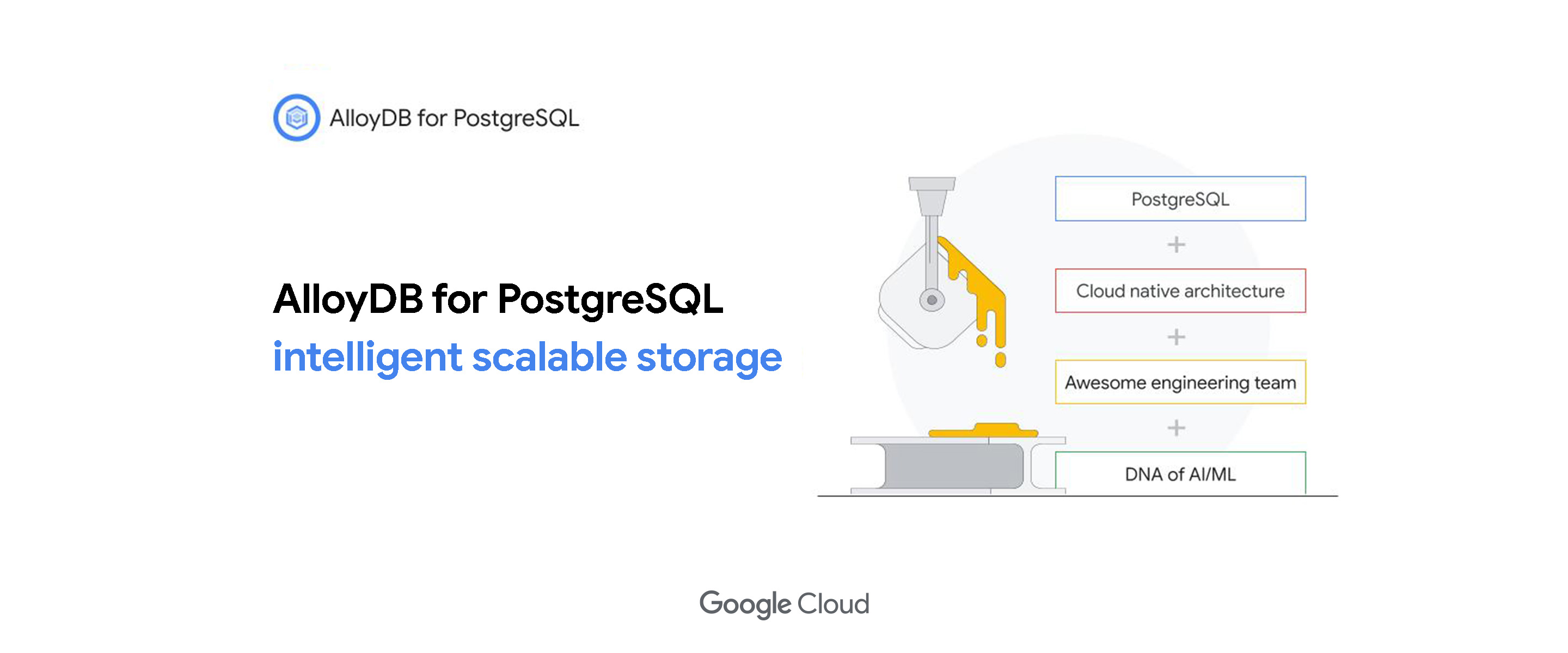Following a seven-month preview, Google Cloud’s AlloyDB for PostgreSQL service is finally being made generally available to all customers, the company said today.
AlloyDB for PostgreSQL is a fully managed, PostgreSQL-compatible database service that’s aimed at companies looking to modernize their most demanding database workloads, the company explained. Announced in May, it’s built atop the open-source PostgreSQL database management system. It provides many additional features not found in PostgreSQL, including artificial intelligence-powered management and full integration with Google Cloud’s AI and data analytics services.
Google Cloud said at the time of AlloyDB’s launch that it’s powered by an intelligent, database-optimized storage service that allows it to scale up seamlessly with predictable performance. It comes backed with embedded AI and machine learning, analytical acceleration capabilities and automatic tiering of data, making it ideal for any high-value workload, with minimal management overheads.
Many companies are desperate to move away from legacy, on-premises databases to open-source cloud platforms, Google argues. However, they face a daunting task in repurposing business-critical workloads for open-source systems, and often struggle with issues such as performance tuning and application availability.
AlloyDB is designed to overcome these problems, maintaining full compatibility with the latest version of the PostgreSQL database management system. As a result, customers can migrate existing PostgreSQL applications without making any code changes.
In a blog post today, AlloyDB Senior Product Manager Sandy Ghai and Engineering Director Ravi Murthy said Google’s own performance tests show that AlloyDB is more than four times faster than standard PostgreSQL for transactional workloads, and up to 100 times faster with analytical queries. They said it’s also twice as fast as Amazon Web Services Inc.’s comparable PostgreSQL-compatible service for transactional workloads.
“You can expect high out-of-the-box regional availability, backed by a 99.99% availability SLA inclusive of maintenance,” Ghai and Murthy said. “AlloyDB automatically detects and recovers from most database failures within 60 seconds, independent of database size and load. And finally, autopilot systems for automatic provisioning of storage, adaptive auto-vacuuming and more make it easier than ever to manage your database.”
Since launching in preview, Google Cloud has added a bunch of new capabilities to AlloyDB, including security features such as customer-managed encryption keys and VPC Service Controls. It has also expanded the available configuration options, with a new two-vCPU/16-gigabyte RAM machine type. Support for additional PostgreSQL extensions, such as pgRouting, PLV8 and amcheck, have also been added.
In September, Google Cloud added support for PostgreSQL to AlloyDB migrations in preview in its Database Migration Service. At the same time, AlloyDB was integrated with Datastream, a cloud service that enables change data capture and replication to services such as BigQuery.
Google Cloud said customer feedback has been overwhelmingly positive thus far. B4A Serviços de Tecnologia e Comércio S.A, a Brazilian beauty technology startup, said it’s using AlloyDB to help scale its monthly beauty subscription services to more than 100,000 users.
“We opted for AlloyDB for performance reasons, and indeed, the results were amazing,” said Jan Riehle, founder and chief executive officer of B4A. “Combining AlloyDB with a GraphQL API decreased query times for our full catalog of products by up to 90 percent compared to our previous database solution. We also came to appreciate the ease of maintenance that a fully managed solution like AlloyDB provides — setting up and configuring the database was a very smooth process that went really quickly for us.”
Google Cloud said preview pricing for AlloyDB will run through Dec. 31, after which it will apply normal pricing for all customers.
Image: Google Cloud
Show your support for our mission by joining our Cube Club and Cube Event Community of experts. Join the community that includes Amazon Web Services and Amazon.com CEO Andy Jassy, Dell Technologies founder and CEO Michael Dell, Intel CEO Pat Gelsinger and many more luminaries and experts.
Source link




